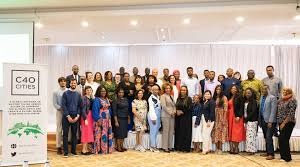Ethiopia, home to a spectrum of over 80 Nations, Nationalities and Peoples is highly blessed with tangible and intangible tourist attractions. Though the inflow of tourists is snowballing from time to time, still there is a lot to be desired to transform the sector.
Which are the major public festivals that are luring tourists? How are they being celebrated? What are the challenges hampering the festival tourism sector? What should be done to attract more tourists so that they could turn to be sources of foreign currency? How they should be preserved, promoted and transferred to the coming generation?
Among the major festivals which are enthralling domestic and international tourists are found Meskel (the discovery of the True Cross), Irreechaa (thanks giving day of the Oromo people), Fiche Chembalala (New Year of the Sidama people), Timiket (Ethiopian Epiphany), Ashenda, Shadey, Ashendiye (Popular religious festivals warmly marked by girls) and others. These festivals have been celebrated for centuries without losing their originality.
Festival tourism has been playing an important role in developing tourism sector. And festivities like Meskel, Irreechaa, Ashenda are attracting hundreds of thousands of tourists from around the world, Acting Communication Director at the Ministry of Culture and Tourism Tariku Negash indicates.
The Ministry has been undertaking exhibitions, bazaars, symposiums and workshops to promote and preserve such magnificent festivals, according to Tariku.
He adds that the number of visitors has been increasing in an astounding fashion since the registration of festivities like Meskel and Irreechaa in the UNESCO’s intangible heritage list in 2013 and 2011 respectively.
‘‘The inscriptions of festivals and holidays in UNESCO’s heritage list have paramount contribution for festival tourism development. For instance, in a holiday category especially when the Meskel festival was inscribed in 2013, the number of foreign tourists was 231,186. But after the registration, the number of holiday tourists has been increasing rapidly; in 2017 it exceeded the 400,000 mark. What we can understand from this is that registering heritages in UNESCO would allow international promotion and recognition and it would facilitate the upsurge of tourists’ flow.’’
For his part, Axum Culture and Tourism Office Head, Gebremedhim Fetsumbirhan says that festival tourism has massive contribution and economic benefit for the town of Axum, despite insufficient hotel, accommodation and infrastructure developments.
St. Mary of Zion feast, Ayniwari and Hosana are among the major festivals being celebrated colorfully in Aksum and its surroundings, he points out.
‘‘Tens of thousands of local and foreign tourists participate on holidays being performed in Axum every year. As a result, people whose livelihoods are interwoven with tourism have been gaining ample economic advantages. Hotels, restaurants, tour and travel operators and other stakeholders were beneficiaries of festival tourism,’’ Gebremdehin explains.
The head underlined that though Ethiopia is blessed with abundant religious and cultural tourist attractions, it has not yet utilized it due owing to lack of facilities and basic infrastructures. Hence, he urged government, private investors and other pertinent stakeholders to work hand in glove for the transformation of the smokeless industry.
Archaeology and Tourism Institute Director at Aksum University, Teklebirhan Legesse says that festival tourism blessings should be researched and documented properly. He adds that a digitalized way of classifying, documenting and preserving technics would boost the tourist flow significantly.
As to him, qualified and skilled human power is also vital for the development of the sector and his institute is striving to fulfill that demand.
‘‘Tourism is a smokeless industry that would have pivotal role in invigorating the economy. But it wouldn’t be realized with outdated facilities, unskilled manpower and lack of infrastructure. Thus, stakeholders should work to identify the challenges and solutions.’’
Ethiopia has obtained more than 2.5 billion USD from over 500,000 foreign tourists over the last nine months of 2018/19 fiscal year, the Ministry of Culture and Tourism disclosed. To further enhance festival tourism, government and private investors and concerned stakeholders should pay attention for preserving, promoting and registering religious and cultural heritages and need to ensure basic infrastructures. If so, the nation could benefit from its immense tourism potentials.
The Ethiopian Herald Sept 29/2019BY TSEGAYE HAGOS





